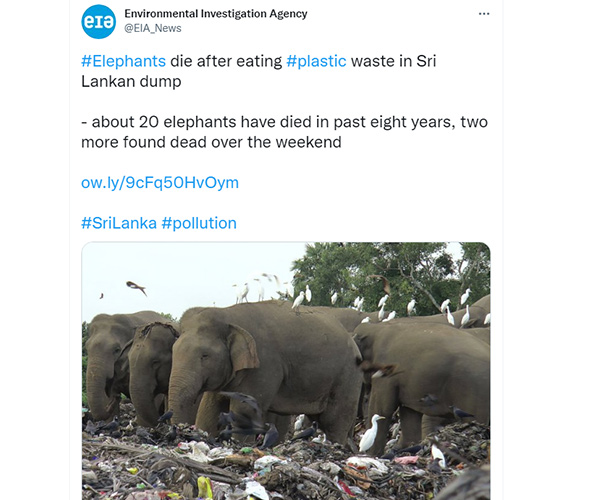Plastic crisis threatens planet as much as climate change, report warns

Photo used for illustrative purpose.
Gulf Today Report
Rampant pollution from the overproduction of plastics poses a major threat to the planet’s basic ability to maintain a habitable environment, a new report has warned. It also called for a new UN treaty committing nations to better interventions against the crisis.
The report, published on Tuesday by the Environment Investigation Agency – an international NGO that investigates and campaigns against environmental crime and abuse – said the threat from plastic pollution is almost equivalent to climate change.
Citing previous studies, the report warned that the emissions of virgin plastic into oceans alone are expected to triple by 2040, threatening the ability of habitats across the planet to sustain life. However, it pointed to the lack of a significant legally-binding global treaty to address rampant plastic pollution.
READ MORE
Prince Harry and Andrew 'not eligible' for Queen s Platinum Jubilee medal
Fortunes of world's 10 richest men more than doubled in pandemic, Oxfam claims
Typhoons, wildfires, missiles, Teen flies solo round world
A recent United Nations Environment Programme (UNEP) report titled Making Peace with Nature identified three existential environmental threats – climate change, biodiversity loss, and pollution – and discusses how they need to be addressed together to achieve sustainability.
The EIA report argues that while two of these threats – biodiversity and climate change – have had dedicated multilateral environmental agreements for about three decades, “no such instrument for plastic yet exists”.
Without serious efforts to curb this pollution, the report warned that by 2040, plastic waste could amount to about 700 million tonnes, and by 2050, the weight of plastic could “far exceed” the weight of fish in every ocean on the planet.
“Our oceans truly are turning into a plastic soup,” the report warned, adding that polluting plastic was not just found in the deepest parts of the seas but also on the highest mountain peaks, human organs, and on remote uninhabited islands.
When plastic in the environment breaks down into ultra-small micro and nano plastics with the release and accumulation of toxic chemicals, they also act as potential vectors for disease and invasive species and contribute to global warming, it said.
Plastics are about 80 per cent carbon and their manufacturing also involves the burning of large quantities of fossil fuels to provide for the high energy demands of industrial processes. During the recycling and disposal phases, about 12 per cent of all plastic waste ever created has been incinerated – a process that could release new toxic chemicals into the environment such as dioxins produced from burning Poly-Vinyl Chloride.
Plastic pollution, the report cautioned, also threatens the Earth’s biodiversity with at least 914 species found to be directly impacted by either plastic ingestion or entanglement.
“This includes all marine species, nearly half of all surveyed seabird and marine mammal species as well as 69 freshwater birds and 49 land birds from 53 families,” the report noted, adding that lost and discarded fishing gear are responsible for over 83 per cent of entanglement cases.
As the plastics on Earth break down, the microplastics released are taken up by plants and animals at the bottom of the food chain, including ocean plankton, which are responsible for producing most of the planet’s oxygen.
While global treaties with jurisdiction, holding countries and entities accountable, exist for climate change and biodiversity loss, the EIA report argued that in the case of plastic pollution, despite mounting evidence on its harms, no such agreement exists.
With over 100 countries, including the UK, expected to favour a new agreement at the next UN Environment Assembly in February and March, the report highlighted the need for a comprehensive agreement with interventions envisioned for every stage of the plastic lifecycle, including production, product design, and waste management.









